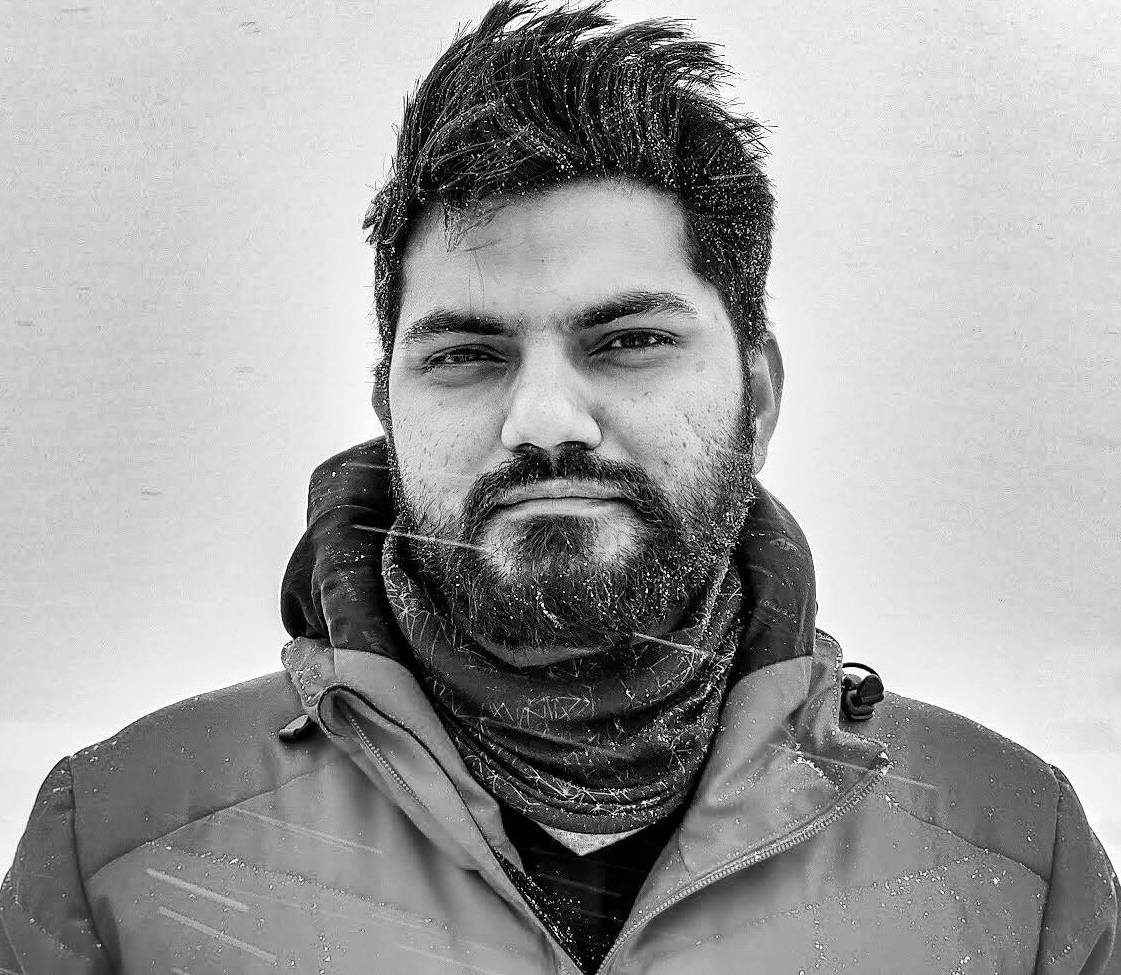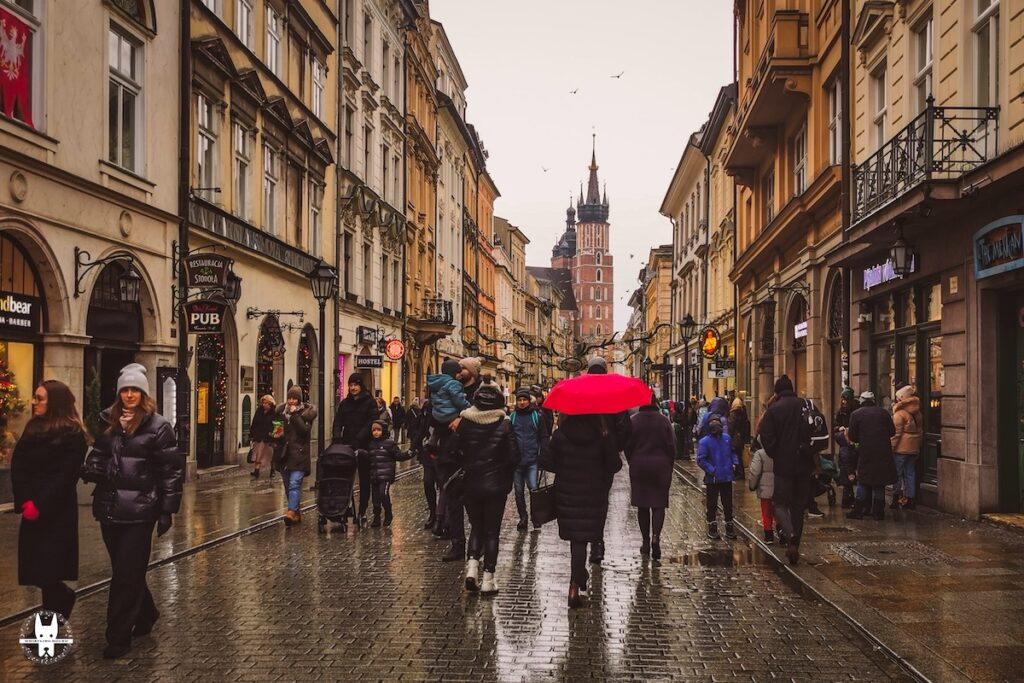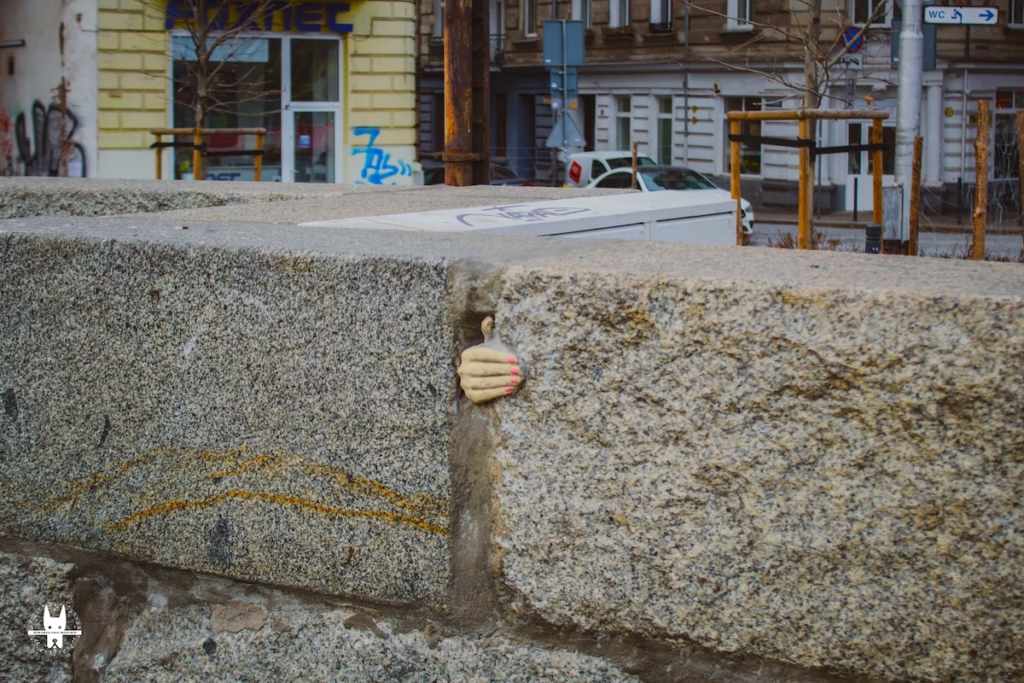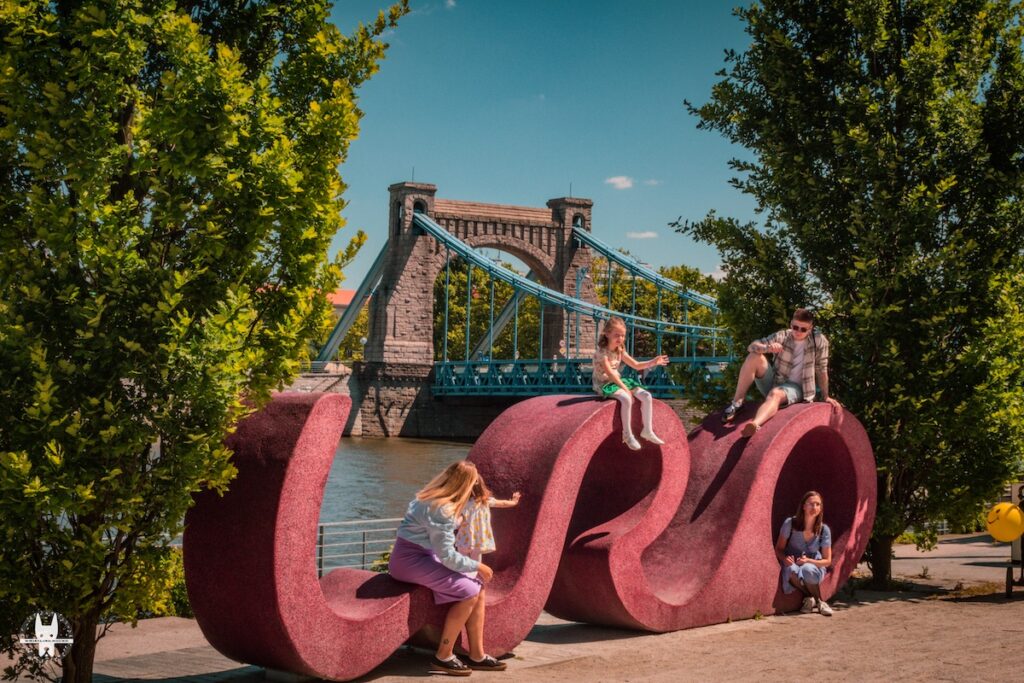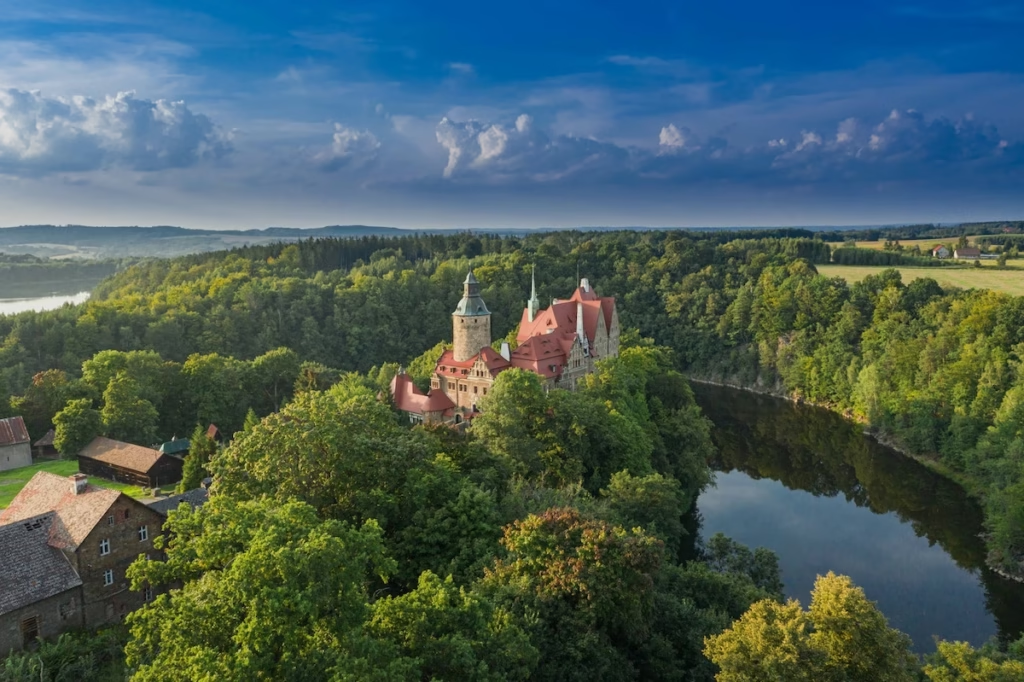Here’s the truth: I’ve experienced the peaking overtourism in Kraków firsthand! It is when tourism stops bringing new experiences and starts sabotaging places. Exactly what UK stag parties have done to the UNESCO listed Kraków Old Town, turning the heart of Poland’s cultural capital into a rave zone.
I’m a tour guide in Poland; the kind with a camera in one hand and a pen in the other. I am also someone who loves immersing in stories of culture, food, and the local hidden quirks. Things that give each place its pulse. I’ve led guests through vivid corners of the country, from the cobbled lanes of Kraków to the quiet villages of Podkarpackie that rarely make it to guidebooks.
I walk Kraków’s buzzing streets, tell stories beneath Wawel’s fire-breathing dragon, and introduce travellers to the soulful corners that make Polish cities sing. That’s what I do. That’s what I love.
But I live in Wrocław, and have proudly called it home since 2018. Two months ago, at the UEFA Conference League Final in Wrocław, the Rynek briefly became a bullring. Until that moment, I had never experienced anything like that before. Drunk football fans clashed, and chairs and beer glasses went flying. All that noise, destruction, and chaos wasn’t travel, it was takeover. As a tour guide in Poland, I can’t stay quiet. I’m for locals, for meaningful journeys, and for tourism done respectfully. And my patience is wearing thin.
When the Dream Job Becomes a Dilemma
Welcoming curious travellers, sharing secrets of medieval cities, walking cobbled paths lined with stories, it used to be a dream. And now, I often stand at the edge of crowded squares wondering: What have we done to travel? I’ve watched overtourism in Poland mutate into something grotesque. We call it culture-sharing and whatnot. But is it, really?
Overtourism in Europe
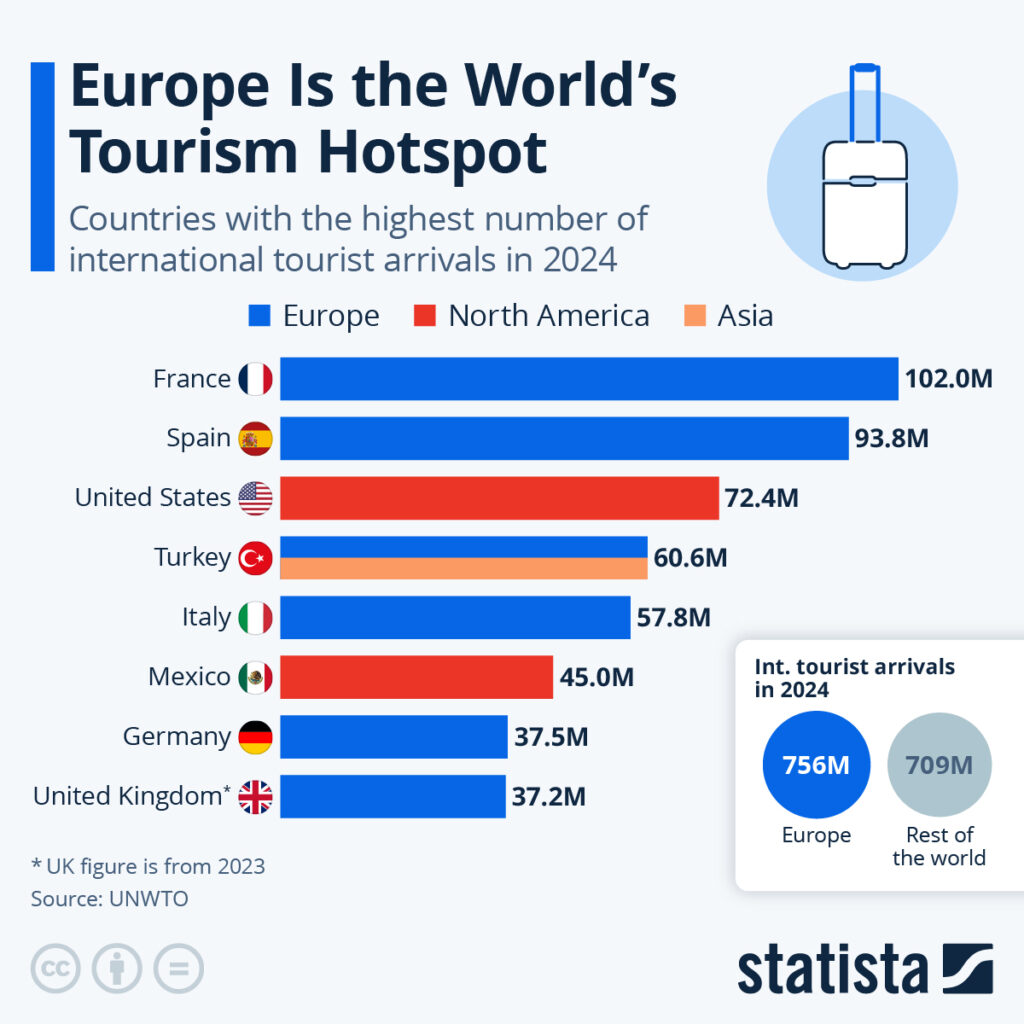
When many tourists overwhelm a destination, overtourism happens. It starts with degrading the local environment, culture, heritage, and overall quality of life. In Europe, it’s reached crisis levels in places like Venice, Amsterdam, Barcelona, and yes, Kraków. Locals are priced out. Trash piles up. Public spaces become performance sets. The destination isn’t meaningful for anyone; not the visitor, not the tourist.
Europe received 756 million international tourist arrivals in 2024. That is a staggering 47 million more than the rest of the world combined, according to the UNWTO. France received over 100 million international visitors in 2024 (≈274k/day). (Source: France / tourism ministry reporting and press). Overtourism protests from Barcelona to Venice are hardly surprising when you see such numbers.
While Poland is far away in the list of top contenders in Europe, it’s been constantly on the rise. The number of international tourist arrivals in Poland was forecast to continuously increase between 2024 and 2029 by in total 9.8 million arrivals (+11.86 percent). After the ninth consecutive increasing year, arrivals are estimated to reach 92.36 million arrivals and therefore a new peak in 2029. (Source: Statista)
Numbers still imply that Poland is the untapped potential of Europe, but for how long is the question!
Kraków is advertised as the fairy tale city of Poland. But we leave out the part where Prince Charming gets punched in a pub crawl. Friday nights are chaotic, mostly smelling of cheap vodka and aggression.
Overtourism Europe: Why locals are fighting back?
From Barcelona to Venice to Mallorca and Lisbon, protests are breaking out into the streets. In Spain and Portugal, residents have squirted tourists with water pistols during anti-tourist demonstrations, chanting “one more tourist, one less neighbor.” Cities have had enough, they are responding: Venice now charges day-tripper entry fees and bans giant cruise liners. In 2024, Spain hosted 94 million international visitors, up from 83 million in 2019, and rents in tourist districts in Spain continue to soar.
This year alone, we’ve seen:
- Venice introducing a day-visitor fee
- Amsterdam banning cruise ships and stag parties in the Red Light District
- Barcelona increasing tourism taxes to deter short-term stays
- Prague is taking a firm stand against rowdy tourism by banning organised bar crawls between 10pm and 6am
- Prague is also cracking down on costume parties and Airbnb rentals.
Czech Tourism hopes these measures will quiet the nightlife chaos, clean up the streets, and restore its reputation beyond just being a party hotspot. (Source) Poland isn’t immune. Kraków and Zakopane are beginning to buckle under pressure. Every other day someone is filmed taking a dip in one of the pristine lakes of the High Tatras (Tatra Mountains) in Zakopane. Bathing in protected nature reserve is FORBIDDEN! Wrocław, once a hidden gem, now features on every “Top 10” list, and that clearly means: they are coming for us! Sensing the growing overtourism in Kraków, the city has asked the government to change the law so that it can introduce tourists tax in response to growing visitor numbers.
Italy’s overcrowded charm
Venice once housed 175,000 residents; today barely 50,000 remain, yet up to 85,000 day-trippers pour in daily. Rome and the Cinque Terre face similar strains. In Austria’s Hallstatt, as many as 30,000 visitors arrive in a single day. That’s more than the town’s year-round population. When local churches start hiring bouncers to keep tourists out of services, it’s hard to deny that the balance has tipped.
Overtourism Kraków Crisis: A Tour Guide’s Frustration
Living in Poland, I’ve felt the tourism pressure. I’ve watched group tours descend with volume over substance. Eventually the infusion of local flavour gets buried under generic commentary. Overtourism in Kraków is getting worse with each passing day. Public space littered with trash, drunk tourist midnight ruckus over the quiet of the Old Town, and small-scale local businesses closing early to avoid the chaos. It defeats the purpose of the intimate experience my private Poland tours are built on. This isn’t about chasing revenue; it’s about protecting the soul of a place.
What Tourism Should Be – and How It Can Stay That Way?
My Approach to Sustainable Guiding
For me, global sustainable tourism and by extension, sustainable guiding means giving travellers an experience they can feel long after the tour. Generally, tourists leave on a satisfying note saying they “felt part of history,” and it was not just another tick on the itinerary. I never want tourism to blur into a crowd-control exercise.
Balancing survival and ethics isn’t easy. Sometimes I turn down large coach groups because they don’t fit the way I work. Does that hurt the bills? Yes. Still, I’d rather guide five curious travellers in a way that matters than fifty chasing cheesy selfies. I’m realistic too, and there are days when survival demands flexibility. That honesty, I think, is part of the evolution of modern guiding.
Can We Reclaim the Soul of Tourism?
What Responsible Travel Looks Like
If you’re heading to Europe this year, take a moment before you pack:
- Will my presence support this place or strain it?
- Can I book a local tour guide who actually lives there, not a reseller on the other side of the world?
- Am I there to listen and learn, or just fill my feed?
- Responsible travel isn’t about guilt. It’s about grace.
The Alternative: What Tourism Boards and Tour Guides Can Do?
Draw the line between mass tourism and meaningful travel. Protect streets, squares, and trails from turning into stage sets. And yes, there’s policy too:
- Keep guiding personal with small groups, respectful routes, and stories rooted in the place
- Cap day-trip boats or set timed slots (like Hallstatt)
- Regulate rentals, as Barcelona plans to do by 2028
What You (Tourist) Can Do?
Prioritise small-group experiences. Plan off-season travel. Listening is just as important as seeing. Ask, do not assume. Choose operators who live there, not just market there. Remember, the real travel respects the rhythm of a place. Stay in locally owned places. Eat where the menus aren’t translated into seven languages. Be curious, kind, and quiet when in a foreign land.
How to Travel Respectfully in Poland: Quick Tips
Book slow travel tours led by local guides in Poland who live and breathe the cities they walk. Travel by train whenever possible. It is eco-friendly and stress-free. Hire a private city tour with a local travel guide to explore offbeat sites responsibly. Avoid booking group deals with international resellers that sideline local talent.
Small Group Tours Make a Big Difference
Small, curated tours create space for deeper storytelling, authentic local insights and respectful pacing. Whether you’re exploring Jewish history in Warsaw or the hidden gems of Wrocław, choose experiences that respect the space, and the stories.
Must read: All The Dos & Don’ts Of Travelling In Poland
Emerging Trends in Tourism & The Future of Travel
Europe saw record tourism in 2024, with Spain, Italy, and Greece still topping the charts. Yet travellers are starting to look elsewhere. I’ve met Australians in Poland who skipped Paris because they’d rather have a quiet café table here than queue for the Eiffel Tower.
Tech is part of the problem and the solution. Social media and AI-driven itineraries can fill hidden gems overnight, turning them into tourist monocultures. I’ve seen it happen! One viral TikTok and suddenly a quiet space I love is packed with selfie sticks. Cities are reacting with tour permits, caps, and taxes, but unless we focus on quality over quantity, locals will keep paying the price.
My Confession as a Tour Guide
I’m for tourism that respects local life, supports indie businesses, and honors place heritage. I want to guide experiences that finish with guests in local cafés, connecting with residents, not leaving crowds behind. I so want to turn down requests that feel exploitative, and adapt when compromises need negotiation. But I won’t compromise on ethos. Because good tourism is deeply personal and substance outlives crowd size.
But let’s be honest! When it comes to sustainable tour guiding, it’s often a choice between survival and standards
There’s a hard truth behind the smiling face of your guide: we often don’t get to choose our clients. In peak season, we’re booked by volume. Agencies send us the crowds. Sometimes they’re respectful. Sometimes they’re rowdy, racist, or just rude. You smile, you tell the stories, you end the tour. Then you go home questioning everything.
Some guides have quit. Others power through. I am on a quest to build smaller, slower but consistent tours. But that’s not what the algorithm promotes. Social media industry wants spectacle. And AI? It’s all-in-one provider! So we walk the line.
Conclusion: A Guide’s Open Letter to Sustainable Travel
This isn’t anti-tourism, rather it’s pro-responsibility. It’s a pledge that tours bridges cultural exchange, not noise.
We’re not asking tourists to disappear. We’re asking them to see us, not just the sights. Guides are custodians who want to show you beauty, history, humanity. But we can’t do that if we’re herding 60 people through a square that can’t breathe. I dream of tours where we walk slow, ask deep questions, and leave no trace.
If that sounds like your kind of travel, come find us. We’re still out here. Fighting for the soul of tourism.

